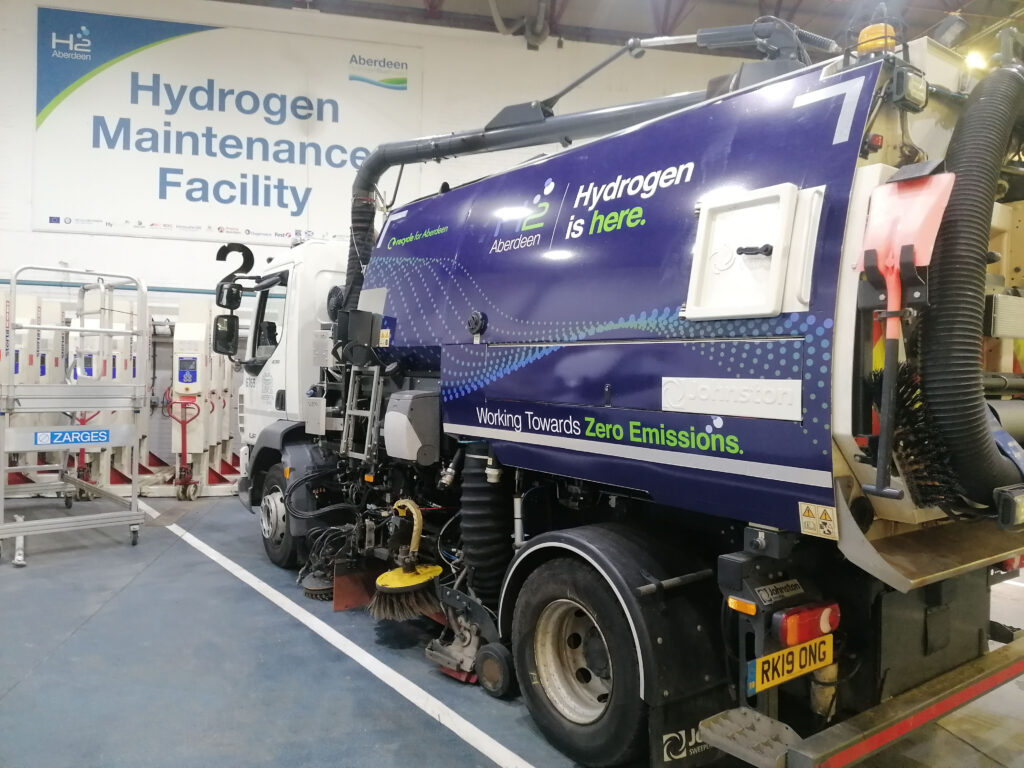ULEMCo, the hydrogen vehicle manufacturer, has demonstrated real-world reductions in CO2 emissions by deploying road sweepers for Aberdeen City Council. It would save almost 30 tonnes of CO2 when applied to the entire fleet of sweepers.
The optimised sweeper with hydrogen dual-fuel operation for both the powertrain and the ‘donkey’ engine was announced in 2020 and has shown daily diesel displacement rates nearing 50% – believed to be a record for the technology. The vehicle has been running on the streets of Aberdeen since the start of this year, saving the equivalent of approximately three tonnes of CO2 emissions per year.
Dual fuel
ULEMCo has converted the sweeper to run on dual-fuel, which enables a controlled quantity of hydrogen to be burned directly in the engine in combination with the diesel. This leads to exhaust emission reductions that relate directly to the proportion of the displaced diesel – typically between 20-40% depending on the duty cycle. However, in this case, the duty cycle, engine types and operation deliver as much as 50% of the energy from hydrogen. Each sweeper would use 700kg of hydrogen in a year, so the nine-strong fleet would use 6.3 tonnes of hydrogen with supplies the Council is accessing at the Aberdeen Hydrogen hub. Thirty tonnes of CO2 is sufficient to offset the carbon footprint of three people for a year in the UK. Extrapolating that to all of the 333 UK councils would suggest that a saving of 10,000 tonnes is possible if an average of just ten vehicles were converted at each.
ULEMCo believes that this application – and others, such as refuse collection vehicles, spreaders and other specialist equipment – are ideally suited to the use of hydrogen. Their daily duty cycles take them back to base, enabling consolidation of scaled demand for hydrogen and the related refuelling infrastructure. This provides the base load for developing competitive hydrogen supplies and cracks the ‘chicken and the egg’ problem dissuading some operators from transitioning to alternative fuels.
With a fleet of over a hundred utility vehicles now converted by ULEMCo and working in real-world environments across the UK, this is arguably the most innovative yet practical approach to decarbonising the cleaning of Britain’s roads.
Councillor Jenny Laing, Leader of Aberdeen City Council, said: ‘I would say to local authorities that are thinking about moving to hydrogen technology, that it not only helps you with the economic targets, but it will certainly help with the environmental targets that every local authority in Scotland has set.”
Amanda Lyne, Managing Director of ULEMCo, comments: ‘Attention and public funding support focus on looking for zero-emission solutions, but we cannot wait for these to be commercially available. We must start transitioning to carbon-free energy using the full toolkit to achieve CO2 reduction immediately.’




